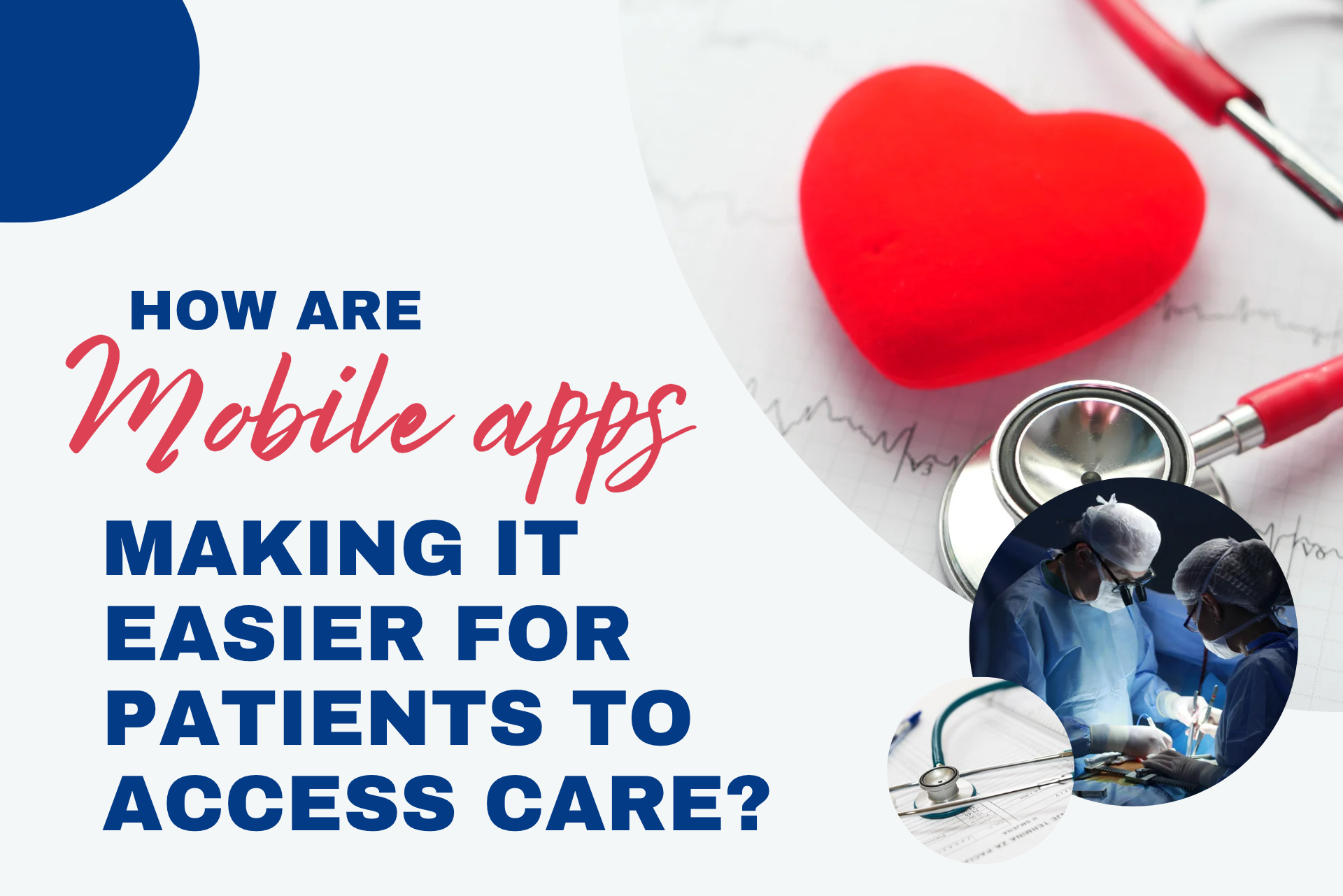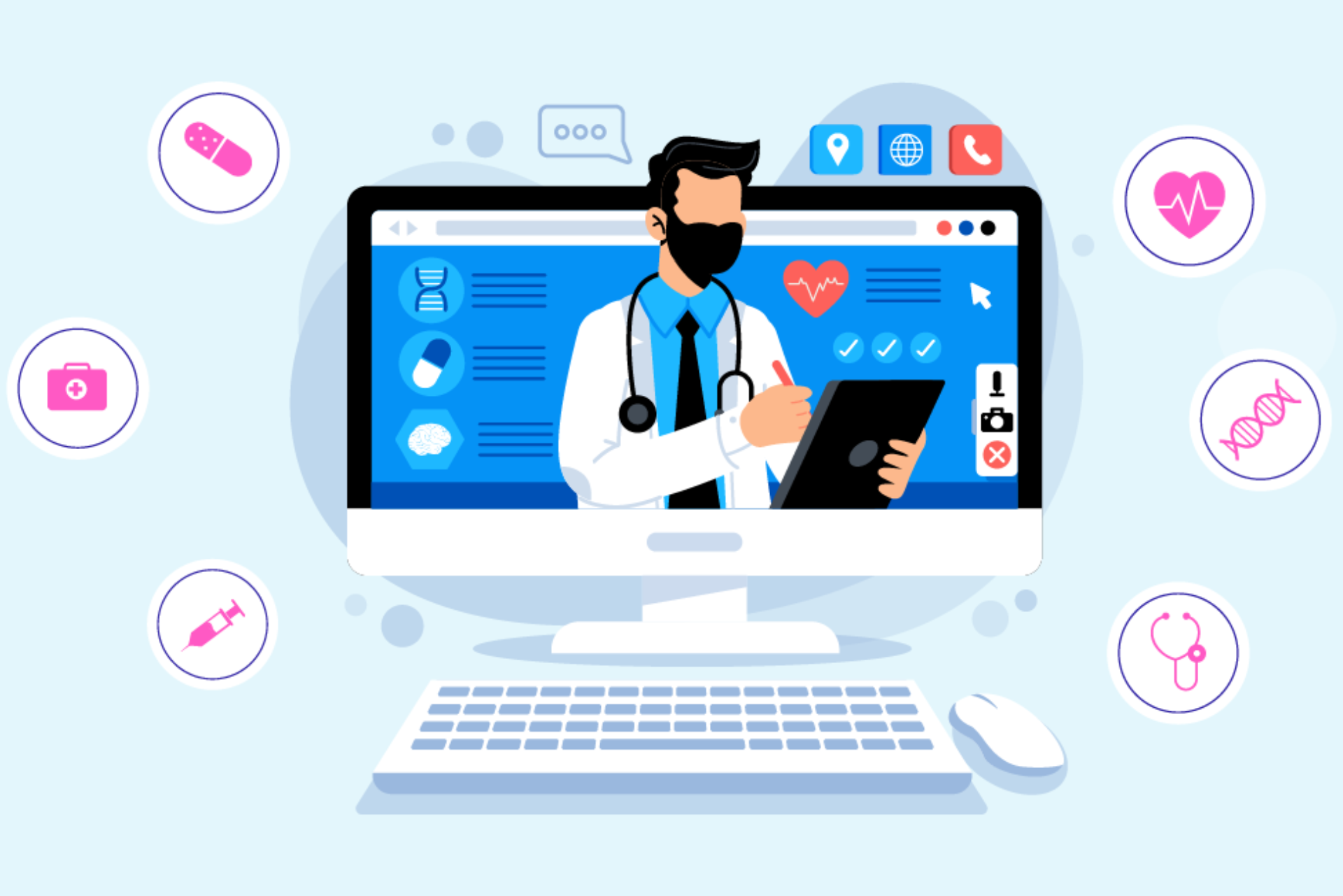How are mobile apps making it easier for patients to access care?
In today’s digital age, mobile apps have become an integral part of our lives, revolutionizing various industries, including healthcare. The rise of mobile technology has transformed the way healthcare services are delivered, accessed, and managed. With the increasing popularity and accessibility of smartphones and tablets, healthcare providers and patients alike leverage the power of mobile apps to enhance efficiency, improve patient outcomes, and drive positive changes in the healthcare landscape.
The Future of Healthcare Management Systems is paving the way for innovative advancements in healthcare administration, optimizing processes, and improving patient care.
In this blog post, we will explore the remarkable ways in which mobile apps are revolutionizing the healthcare industry using Hospital Management Systems. From empowering patients with convenient access to medical information and services to streamlining healthcare workflows and enabling remote consultations, mobile apps are reshaping the healthcare landscape in unprecedented ways. Join us as we delve into the transformative impact of mobile apps and uncover the exciting possibilities they bring to healthcare providers, patients, and the entire ecosystem.
How are mobile apps making it easier for patients to access care?
Mobile apps significantly ease the process of accessing healthcare services for patients. With just a few taps on their smartphones, patients can schedule appointments, access medical records, and seamlessly communicate with healthcare providers.
The convenience offered by mobile apps eliminates the need for physical visits or long waiting times, enabling patients to receive timely care from the comfort of their homes. Apps like MyChart and HealthTap provide secure platforms for patients to access their medical information and test results, empowering them to take an active role in managing their health.
Moreover, telemedicine apps like Doctor On Demand and Amwell connect patients with healthcare professionals through video consultations, ensuring quick and convenient access to medical advice and treatment, especially for individuals in remote areas. These mobile apps bridge the gap between patients and healthcare services, enhancing accessibility and ultimately improving patient outcomes.
In recent years, there has been a surge in the creation of healthcare mobile apps, and the global digital health market is expected to be worth more than $330 billion by 2022 (source: Statista).

In recent years, there has been a surge in the creation of healthcare mobile apps, and the global digital health market is expected to be worth more than $330 billion by 2022
How are mobile apps providing doctors with new tools to diagnose and treat patients?
Mobile apps have revolutionized healthcare, making it easier for patients to access care and empowering doctors with innovative tools. With smartphones and tablets on the rise, healthcare apps streamline workflows, improve outcomes, and transform medical services.
These apps offer features such as appointment scheduling, access to records, telemedicine, and diagnostic support. For instance, diagnostic apps like VisualDx and Figure 1 assist doctors in making accurate diagnoses using medical images and references. Furthermore, doctors benefit from apps like Epocrates and Medscape, which provide comprehensive drug information for safe prescribing and treatment decisions.
Remote monitoring apps allow doctors to track patients’ vital signs and provide real-time health data for effective patient management. By leveraging these mobile apps, doctors enhance their ability to diagnose, treat, and monitor patients effectively.
The usage of mobile technology in the health and wellness space is expanding rapidly, with the mobile health (mHealth) business predicted to grow to $105.6 billion by 2030 in the US (source: Grand View Research).

The usage of mobile technology in the health and wellness space is expanding rapidly, with the mobile health (mHealth) business predicted to grow to $105.6 billion by 2030 in the US
How are mobile apps helping to improve the overall quality of care?
Mobile apps play a crucial role in improving the overall quality of care by enhancing various aspects of healthcare delivery. The future of healthcare is becoming increasingly mobile and interconnected, with the continuous development and advancement of apps for healthcare professionals. Here are some key points:
Enhanced Patient Engagement
Mobile apps empower patients to actively participate in their healthcare journey by providing access to personal health records, educational resources, and medication reminders. This promotes better patient engagement and self-management.
Efficient Communication
Apps facilitate seamless communication between patients, healthcare providers, and caregivers. Features like secure messaging and video consultations enable timely and convenient communication, leading to improved care coordination and reduced medical errors.
Access to Medical Information
Mobile apps grant instant access to a wealth of medical information, including symptom checkers, drug databases, and treatment guidelines. This accessibility aids in accurate decision-making and enables evidence-based care.
Remote Monitoring and Telehealth
Mobile apps enable remote monitoring of patient’s vital signs and health parameters, allowing healthcare providers to intervene promptly and provide necessary guidance for better outcomes. Telehealth apps also make healthcare more accessible, particularly for individuals in remote areas.
Medication Management
Mobile apps help patients stay on track with their medications through reminders, dosage instructions, and refill alerts. This reduces medication errors, improves adherence, and ultimately enhances treatment effectiveness.
Data-driven Insights
By collecting and analyzing health data, mobile apps generate valuable insights that can be utilized by healthcare providers for population health management, research, and clinical decision support. These insights contribute to improved care quality, personalized treatment plans, and better healthcare outcomes.
Overall, mobile apps revolutionize healthcare by promoting patient engagement, enabling efficient communication, providing easy access to information, facilitating remote monitoring, enhancing medication management, and leveraging data-driven insights. By addressing these aspects, mobile apps significantly improve the overall quality of care and patient experiences.
What are some of the most commonly asked questions about mobile health apps?
What are the benefits of using mobile health apps?
Mobile health apps help patients manage chronic conditions, track fitness goals, and connect with healthcare providers.
What are some of the risks associated with using mobile health apps?
Risks include inaccuracies, potential hacking, and unauthorized collection of personal data.
What are the regulations governing mobile health apps?
Regulations vary by country, but, in general, mobile health apps must be accurate, secure, and user-friendly.
Conclusion
Mobile apps are transforming the healthcare industry by making it easier for patients to access care, providing doctors with new tools, and improving the overall quality of care. As mobile technology continues to evolve, we can expect even more innovative ways to utilize mobile apps for healthcare.
Reach out to us if you are a healthcare service provider interested in developing a mobile healthcare app. BharatLogic is a group of mobile application developers with extensive knowledge of innovative technologies such as the Internet of Medical Things. We can assist you in making your fantastic mobile health app ideas a reality.


